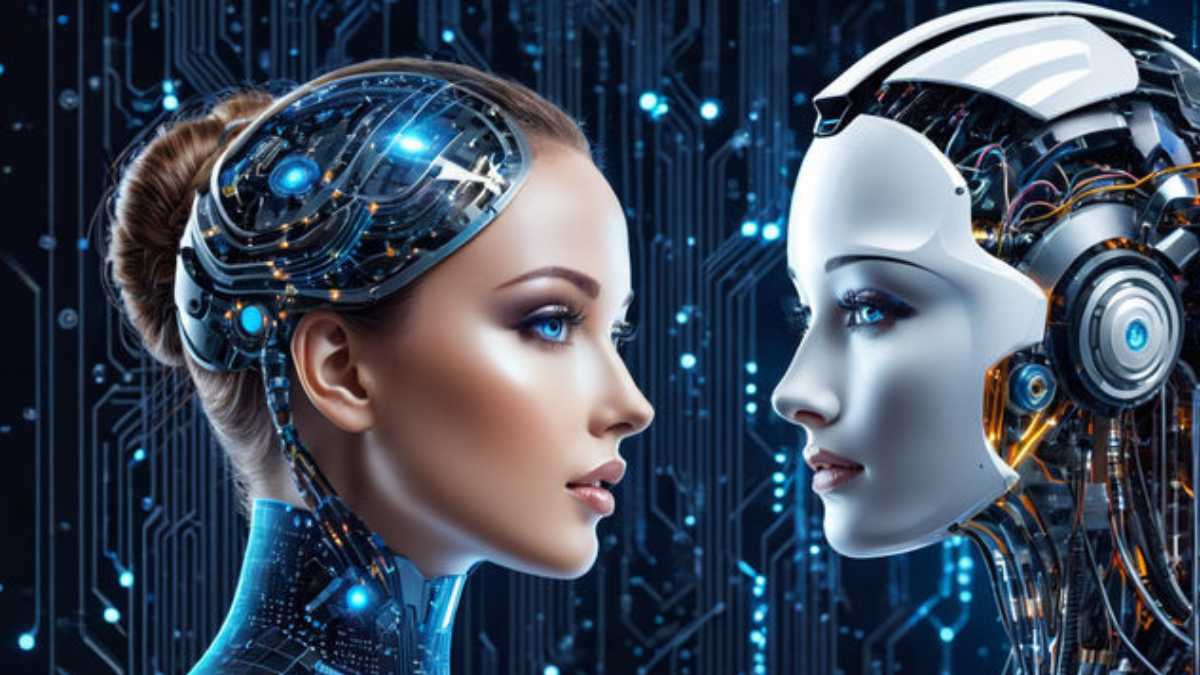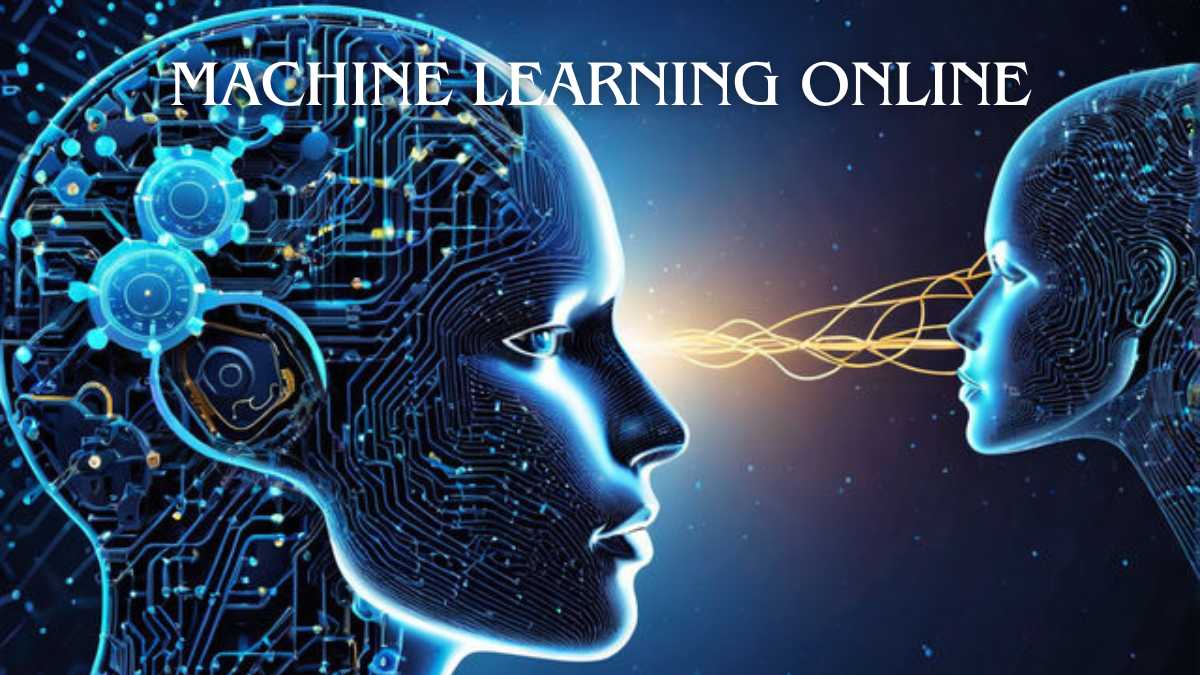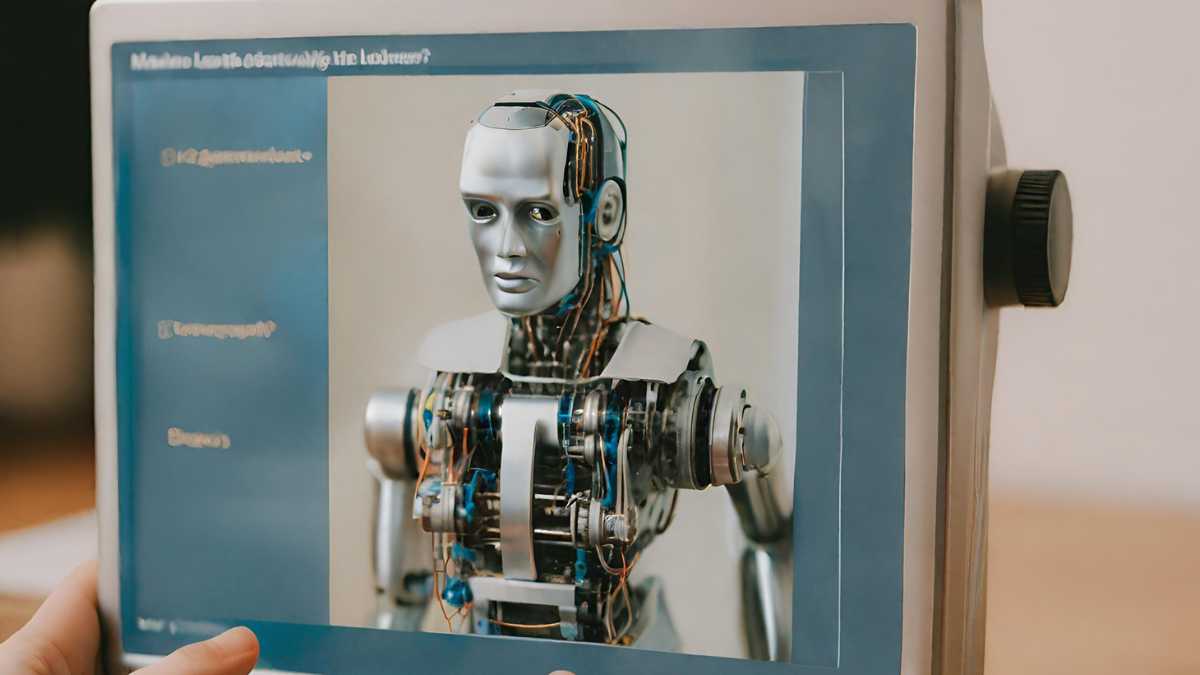Discover the power of artificial intelligence machine learning. Explore cutting-edge techniques and applications to revolutionize your business. Dive into the future of AI and ML.
The hoopla about how AI and machine learning are revolutionizing every aspect of life has probably already worn off. You are still attempting to comprehend the true significance of these keywords for your company, though. We’ve got you covered, so relax. We’ll cut through the hype in this piece and demonstrate how AI and ML can elevate your business. So that you can see the concrete advantages, we’ll examine real-world examples and applications.
These technologies are very powerful and can be used for both acquiring strategic insights and optimizing operations. Are you ready to seize opportunities for transformation? Let’s explore how AI and ML are influencing the future. There are lots of doable suggestions to increase creativity and outcomes, regardless of where you are in the process of using AI. Let’s go together and explore the future that lies ahead.
Understanding Artificial Intelligence and Machine Learning
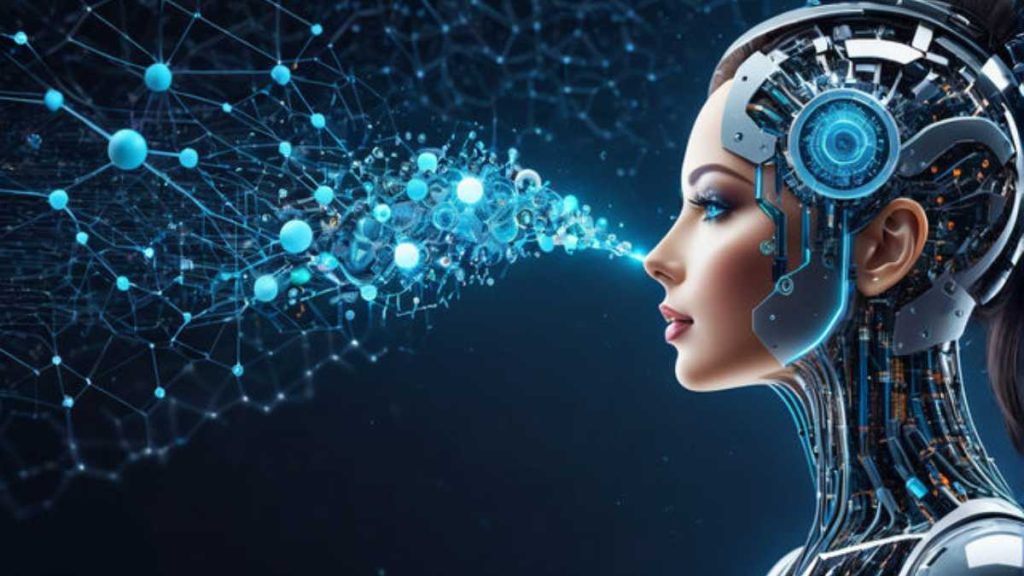
| Topic | Artificial Intelligence (AI) | Machine Learning (ML) |
|---|---|---|
| Definition | AI refers to the simulation of human intelligence in machines that can perform tasks typically requiring human cognition. | ML is a subset of AI that focuses on developing algorithms and models that allow computers to learn from data and improve over time. |
| Examples | Chatbots, recommendation systems, self-driving cars, image recognition, natural language processing. | Regression, classification, clustering, neural networks, decision trees. |
| Learning Approach | Rule-based, expert systems, symbolic reasoning. | Data-driven, statistical, learning from examples. |
| Data Dependency | May or may not require large amounts of data. | Heavily relies on data for training and generalization. |
| Human Intervention | Often requires manual programming and rule definition. | Learns autonomously from data without explicit programming. |
| Generalization | May not generalize well beyond specific tasks. | Designed to generalize and make predictions on new data. |
| Adaptability | May not adapt well to changing environments. | Adapts to new data and adjusts its model over time. |
| Complexity | Can be complex due to rule-based systems and expert knowledge. | Complexity varies based on the ML algorithm and problem domain. |
| Applications | AI is used in various domains, including healthcare, finance, gaming, and robotics. | ML is applied in areas like fraud detection, recommendation engines, and predictive analytics. |
What is Artificial Intelligence?
Artificial intelligence or AI is the simulation of human intelligence processes by machines, especially computer systems. These processes include learning, reasoning, and self-correction. AI makes it possible for machines to learn from experience, adjust to new inputs, and perform human-like tasks like recognizing speech, translating languages, and making decisions.
What is Machine Learning?
One particular use of AI is machine learning, which trains computers to learn and behave without explicit programming through the use of vast volumes of data. With little assistance from humans, the machine learns automatically by looking for patterns in data to generate judgments or predictions. supervised learning, unsupervised learning, and reinforcement learning are the three categories of machine learning.
How AI and Machine Learning Are Related
Machine learning is one of the primary tools used by AI. Without being specifically programmed to carry out the task, machine learning algorithms create a mathematical model based on sample data, or “training data,” in order to make predictions or choices.
The creation of computer programs that can access data and utilize it to learn for themselves is the main goal of machine learning. It gets increasingly accurate the more data it gathers. Conversely, artificial intelligence (AI) mimics human intellect broadly through machine learning. AI enables robots to learn from their experiences, adapt to new inputs, and carry out jobs that resemble those of humans.
The Future of AI and ML
Machine learning and artificial intelligence have the power to drastically change society and our way of life. Developments in AI and ML have made it possible for self-driving cars, robotics, AI assistants, facial recognition, and more. As long as businesses keep expanding the capabilities of machines, the possibilities are virtually limitless. AI has the potential to drastically alter both industry and people’s lives. For AI and ML, the future is bright.
Powerful Applications of AI and ML
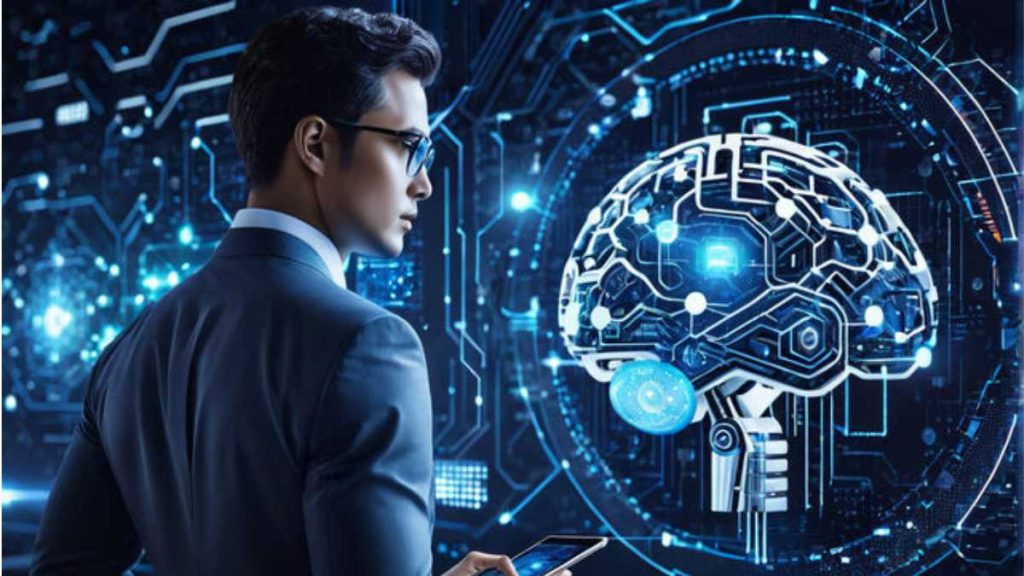
| Application | Description |
|---|---|
| Healthcare and Life Sciences | AI and ML are used for disease diagnosis, drug discovery, personalized medicine, and predicting patient outcomes. |
| Manufacturing | AI-driven automation, predictive maintenance, and quality control enhance manufacturing processes and efficiency. |
| E-commerce and Retail | Personalized recommendations, demand forecasting, fraud detection, and supply chain optimization. |
| Financial Services | Algorithmic trading, credit risk assessment, fraud prevention, chatbots for customer service, and investment analysis. |
| Telecommunications | Network optimization, predictive maintenance, customer churn prediction, and virtual assistants. |
Automating Business Processes
Employees may focus on more strategic tasks by using AI and ML to automate tedious and repetitive business operations. AI systems educated on massive datasets may undertake a variety of tasks, including data entry, mail sorting, and customer support inquiries. Just a couple of these repetitive tasks may be automated to save your company a tonne of time!
Personalized Customer Experiences
The capacity to collect client data and leverage it to provide highly tailored experiences is one of the most interesting uses of artificial intelligence. Artificial intelligence (AI) systems can identify client preferences and adjust products by examining purchase history, website usage, and customer care contacts. These might be tailored newsfeed material, individualized reward schemes, or product recommendations on an online store. A customer experience that seems customized specifically for you is the ultimate result.
Optimized Decision Making
AI and ML are excellent at detecting patterns in huge amounts of data. Businesses can take advantage of this ability by using AI to optimize complex decision-making. For example, AI can help determine the most effective marketing campaign based on predictive models, and identify candidates likely to churn or detect fraud in real-time. By harnessing AI for data-driven decision-making, businesses can make the choices that will drive the best outcomes.
The possibilities for AI and ML are endless. Whether automating processes, personalizing experiences, or optimizing decision-making, AI has the potential to revolutionize how your business operates. The future is here—are you ready to unlock the power of AI?
How Businesses Are Using AI and ML to Gain a Competitive Edge

| Application | Description |
|---|---|
| Fraud Detection and Cybersecurity | AI helps identify and prevent fraudulent activities, safeguarding businesses and customers. |
| Data-Driven Decision Making | AI analyzes data to provide insights, aiding informed business choices and strategic planning. |
| Enhanced Customer Experience | Personalized recommendations, chatbots, and AI-driven support enhance customer satisfaction. |
| Process Automation and Efficiency | AI automates repetitive tasks, streamlining operations and improving overall efficiency. |
| Predictive Analytics | ML models predict trends, enabling proactive decision-making and better resource allocation. |
| Improved Product Development and Innovation | AI assists in designing and optimizing products, fostering innovation and market competitiveness. |
| Enhanced Operational Efficiency and Optimization | AI optimizes supply chains, inventory management, and resource allocation. |
Personalized Experiences
Companies are using AI and ML to better understand their customers and personalize the experience. By analyzing customer data like past purchases, interests, and browsing history, businesses can determine the products and content each customer is most likely to engage with. They can then tailor their website, marketing emails, product recommendations, and more to individual customers. This type of personalization leads to higher customer satisfaction and increased sales.
Improved Efficiency
Many companies are turning to AI and ML to automate time-consuming, repetitive tasks. For example, AI systems can handle customer service inquiries, schedule meetings, generate reports, and more. By using AI for these routine tasks, employees have more time to focus on complex, strategic work. AI also reduces human error which can improve productivity and quality.
Data-Driven Decisions
AI and ML help businesses make data-driven decisions by uncovering insights that would otherwise go unnoticed. The algorithms can analyze huge amounts of data to detect patterns and trends that humans often miss. Company leaders can then use these insights to make strategic decisions about things like resource allocation, new market opportunities, efficiencies, and competitive advantages. Data-driven decisions tend to be more objective and fact-based leading to better outcomes.
Enhanced Innovation
Some companies are using AI and ML to accelerate innovation. For example, AI can help with tasks like optimizing chemical compounds, improving robot dexterity, developing new materials, and more. AI systems can explore thousands of options in parallel to find solutions much faster than humans. They can also uncover unexpected discoveries and patterns that spur new ideas. By incorporating AI into their R&D process, companies can speed up development cycles and gain a competitive edge.
In summary, businesses that want to gain a competitive advantage are turning to AI and ML. Using the latest technologies, companies can provide personalized experiences, increase efficiency, make data-driven decisions, and enhance innovation. By leveraging the power of AI, businesses can improve their operations, better understand their customers, and quickly adapt to changes in the market. The future belongs to companies that embrace AI.
Implementing AI and ML to Revolutionize Your Business
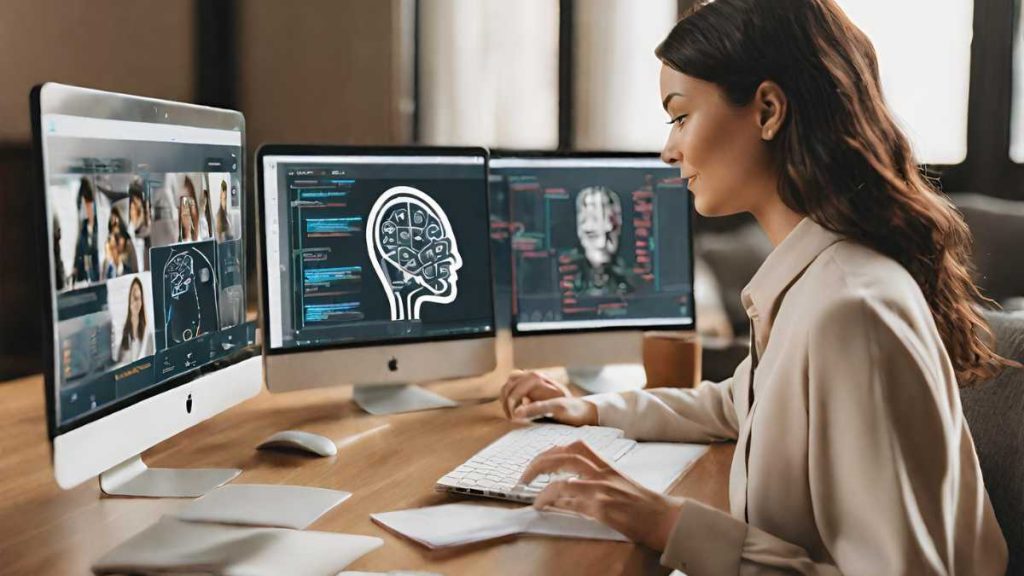
Artificial intelligence and machine learning have the potential to transform how you do business. Once you have a solid understanding of AI and ML concepts, it’s time to apply them to revolutionize your operations and services.
| Step | Description |
|---|---|
| 1 | Define Your Objectives and Data Strategy: Determine your goals for implementing AI and ML in your business intelligence process. Leverage cross-functional teams involving data scientists, business analysts, and domain experts to set the stage for success. |
| 2 | Data Collection and Preparation: Ensure your data is accurate, relevant, and cleaned up. Quality data is essential for AI insights. For example, in retail, AI-powered recommendation engines analyze user behavior to offer personalized product suggestions. |
| 3 | Choose the Right Algorithms: Select algorithms that suit your data and the type of insights you aim to extract. The right choice depends on your goals. |
| 4 | Train and Validate Models: Train AI and ML models |
Automate Repetitive Tasks
Many businesses waste valuable time and money on repetitive, mundane tasks like data entry, customer service responses, and email marketing. AI and ML algorithms can take over these repetitive jobs, freeing up your employees to focus on more strategic work. ###
Gain Valuable Insights
AI and ML techniques are excellent at finding patterns in huge datasets that humans could never detect. By applying AI and ML to your business data, you can uncover key insights to improve decision-making, increase efficiency, and boost sales. For example, ML can analyze customer data to determine the demographics most likely to buy your products or identify ways to improve customer service.
Personalize Experiences
Using AI and ML, you can personalize experiences for each of your customers based on their unique needs and preferences. For example, e-commerce sites can recommend products to customers based on their buying and browsing history. AI-powered chatbots on your website or app can provide customized recommendations and answers to customer questions. Personalization leads to higher engagement, satisfaction, and sales.
Continuously Improve Operations
The true power of AI and ML is their ability to continuously learn and improve without being explicitly programmed. As AI and ML algorithms interact with your business data and systems over time, they optimize their performance and uncover new insights and patterns. This means the benefits to your business will compound over time. With continuous improvement, AI and ML become a powerful engine for innovation.
Implementing AI and ML may seem complicated, but the rewards to your business are well worth the investment. Start by identifying ways these technologies can automate mundane tasks, provide data-driven insights, personalize customer experiences, and continuously optimize your operations. Then find partners and solutions to help make AI and ML work for your business. The future is here—are you ready to revolutionize how you work?
The Future of Artificial Intelligence Machine Learning
The future of AI and machine learning looks incredibly bright. As technology continues to advance, AI and ML will become far more sophisticated and integrated into nearly every industry.
| Topic | Description |
|---|---|
| Advancements in AI and ML | Continued research and development will lead to more sophisticated AI algorithms and ML models. We’ll see breakthroughs in natural language understanding, computer vision, and reinforcement learning. |
| Ethical AI | As AI becomes more pervasive, ethical considerations will be crucial. Efforts to ensure fairness, transparency, and accountability in AI systems will shape the future landscape. |
| AI in Healthcare | AI will revolutionize healthcare by aiding diagnosis, drug discovery, personalized treatment plans, and predicting disease outbreaks. ML models will analyze vast medical datasets for better patient outcomes. |
| Autonomous Systems | Self-driving cars, drones, and robots will become more commonplace. AI-powered systems will navigate complex environments, enhancing safety and efficiency. |
| AI and Creativity | AI-generated art, music, and literature will challenge our understanding of creativity. Collaborations between humans and AI will yield novel and unexpected results |
Automation of More Complex Tasks
AI systems are getting better at handling increasingly complex tasks. Self-driving cars are already on the road, and in the coming years, AI will take over dangerous jobs like mining, warehouse work, and assembly line roles. AI will handle repetitive and mundane tasks so humans can focus on more creative and meaningful work.
AI Becomes More Human-Like
Artificial intelligence will become far more human-like in its abilities. Chatbots and digital assistants will get smarter and understand natural language better. AI will show emotions, empathy, and compassion. Virtual agents may even become indistinguishable from real people. While still years away, human-level AI could transform how we live and work.
Widespread Adoption
AI and machine learning will be widely adopted across industries. In healthcare, AI can help diagnose diseases, discover new treatments, and gain insights into human biology. In education, AI will adapt to students’ needs and learning styles. In transportation, self-driving vehicles will reduce accidents and improve mobility for all. AI has the potential to vastly improve lives, but we must ensure it is used ethically and responsibly as technology progresses.
The future of AI and ML is filled with possibilities, but also uncertainties. If we’re thoughtful and intentional, artificial intelligence can augment and amplify human capabilities in amazing ways. However we must be proactive and address risks to privacy, security, and bias. The future is unclear, but one thing is for certain: artificial intelligence will transform our world in the decades to come. Overall, the future looks bright as long as we’re willing to shape it responsibly.
Conclusion
So there you have it, folks! You now know the key facts about artificial intelligence and machine learning. These advanced technologies are transforming businesses and entire industries. The future is here and it’s intelligent. Embrace the AI revolution to unlock deep insights, boost productivity, and take your organization to the next level.
The sky’s the limit when you harness the power of AI and ML. Just remember to keep humans involved and use the tech responsibly. With great intelligence comes great opportunity. Go forth and innovate! The future awaits.
